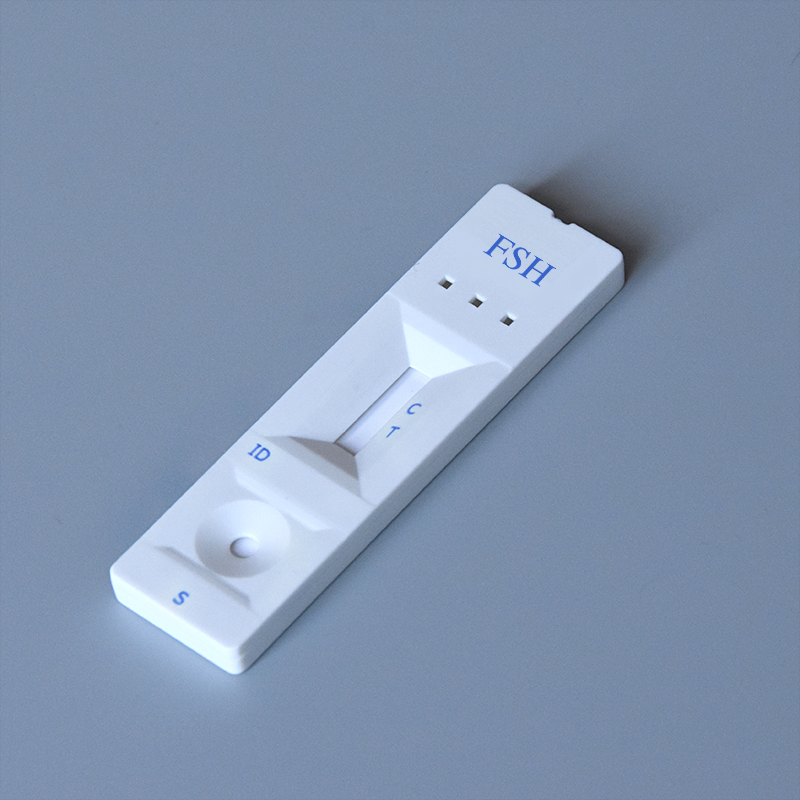Oct . 02, 2024 01:43 Back to list
Understanding the Importance of Ovulation Testing for Conception Success
Understanding Ovulation Testing A Comprehensive Guide
Ovulation is a critical phase in the menstrual cycle, marking the moment when an ovary releases an egg, making it available for fertilization. For many women trying to conceive, tracking ovulation is essential, and ovulation tests have become a popular tool in this pursuit. This article will explore the role of ovulation testing, how it works, and its significance in the journey toward conception.
What is Ovulation Testing?
Ovulation testing involves determining the time when ovulation occurs, which is typically around the midpoint of a woman’s menstrual cycle. The tests are designed to measure the levels of luteinizing hormone (LH) in urine. A surge in LH levels occurs about 24 to 36 hours before ovulation, signaling that it is the optimal time for intercourse to increase the chances of conception.
How Do Ovulation Tests Work?
There are mainly two types of ovulation tests urine tests and blood tests.
1. Urine Tests The most common form, these are similar to pregnancy tests. Women dip a test strip into their urine or use a midstream test. If the test detects a surge in LH, it indicates that ovulation is imminent. These tests can be bought over-the-counter at pharmacies and are user-friendly.
2. Blood Tests Conducted in a clinical setting, blood tests measure hormone levels more precisely. Doctors may recommend these tests if the urine tests are inconclusive or if there are concerns regarding hormonal balance.
When to Start Testing
Determining when to start testing is crucial for effective ovulation tracking. A general guideline is to begin testing a few days before the expected ovulation date. For example, if you have a 28-day cycle, ovulation typically occurs around day 14, meaning testing could start around day 10 or 11. Women with irregular cycles may need to be flexible, using the average cycle length over several months to find the best starting point for testing.
Understanding Test Results
test d ovulation

The results of an ovulation test can be straightforward. A negative result indicates that LH levels are low, suggesting that ovulation has not yet occurred. A positive result indicates an LH surge, suggesting that ovulation is likely to happen in the next day or two.
It’s important to note that factors like hormonal imbalances, certain medical conditions, and even medications can influence test outcomes. Therefore, it could be useful to use ovulation tests in conjunction with other ovulation tracking methods, such as monitoring basal body temperature and cervical mucus changes.
Benefits of Ovulation Testing
Using ovulation tests provides several advantages
- Increases Chances of Conception By pinpointing fertile days, couples can time intercourse more effectively, enhancing the likelihood of conception. - Understanding Menstrual Cycles Regular monitoring can help women understand their cycles better, potentially highlighting any irregularities that may need medical attention. - Empowerment and Involvement For many women, actively tracking ovulation fosters a sense of control and involvement in their reproductive health.
Considerations and Limitations
While ovulation tests are a valuable tool, they do come with limitations. For instance, a positive ovulation test does not guarantee pregnancy, as many factors influence conception. Additionally, stress, illness, and lifestyle changes can impact hormone levels and, consequently, testing accuracy.
It’s also important to approach ovulation tracking with realistic expectations. For couples actively trying to conceive, it might take several cycles before achieving pregnancy, and this can be an emotional journey.
Conclusion
In summary, ovulation testing is a helpful method for individuals trying to conceive. By understanding how these tests work and what the results signify, women can better navigate their menstrual cycles and enhance their chances of conception. However, it’s essential to pair testing with an understanding of one’s body and possibly consult with healthcare professionals if one faces challenges in conceiving. With the right tools and support, the journey toward motherhood can become a more informed and hopeful experience.
-
Premium Empty ABS Plastic Cassettes: Durable & Lightweight Storage
NewsAug.01,2025
-
Accurate Cocaine (Coc) Rapid Test Kit | Fast & Reliable Detection
NewsJul.31,2025
-
Accurate HCG Pregnancy Test Strips | Fast Home Use Kit
NewsJul.31,2025
-
Reliable Early Pregnancy Test Kit Supplier - Multi Plastic Cassette Options
NewsJul.30,2025
-
Transferrin Rapid Test Cassette – Reliable Tumor Marker Detection
NewsJul.29,2025
-
Accurate Follicle Stimulating Hormone Test Kit | Rapid Reliable Results
NewsJul.29,2025

